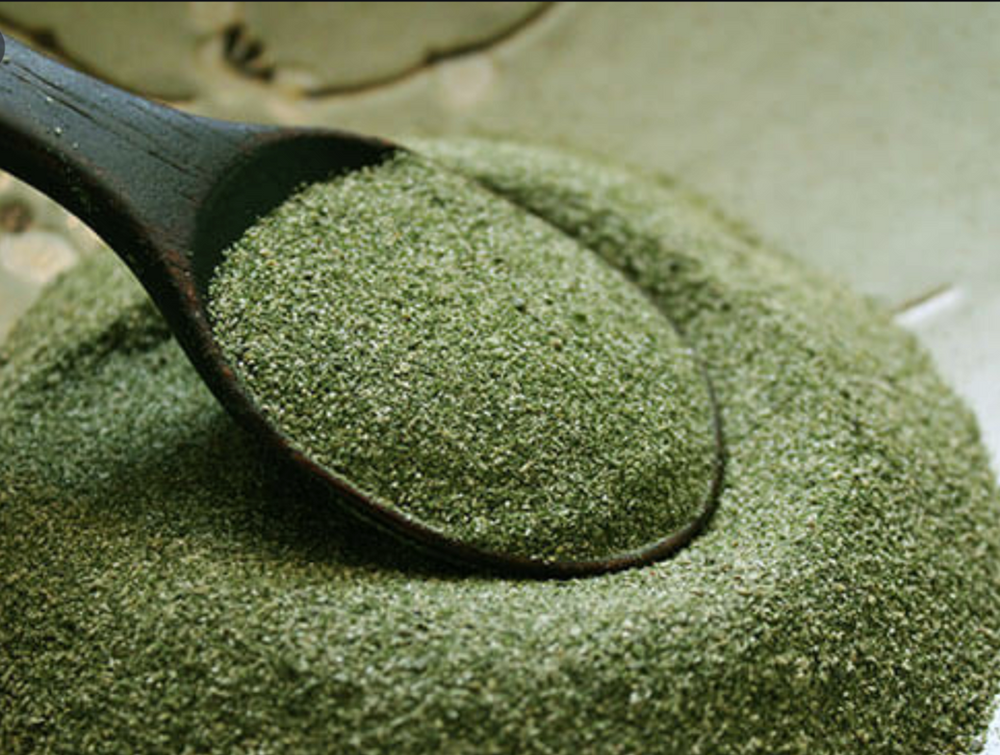Kelp is a type of seaweed called brown algae. Kelp is eaten as food in Japan, Alaska, and Hawaii. Kelp is a good source of folic acid (one of the B vitamins), as well as many other vitamins. It also contains minerals such as iodine, potassium, calcium, and iron.
The kelp I’m referring to here is specifically Deep sea kelp. Bladderwrack which is also known as brown kelp has different remedial uses.
The rich mix of iodine and other minerals in kelp makes it an ideal supplement to keep your dog’s entire glandular system, particularly the thyroid, adrenal and pituitary glands, in healthy working order. This ensures an efficiently working metabolic system, and we all know how important that is for health.
Here are some of the main benefits of Kelp as a supplement:

- It is great for itchy skin. It reduces itching, helps with allergies and the inflammation that comes with it.
- Kelp contains a variety of amino acids. One of them is Tyrosine, which alongside iodine ( which is also in kelp) makes hormones that help the thyroid gland function properly.
- Since it has Anti-inflammation properties, it has been known to help with arthritis.
- Kelp also regulates the glandular system, specifically the pituitary gland, the thyroid glands and the adrenal glands. This has an impact on a better functioning of the metabolic system, thus helping with constipation, digestive issues, acidity, heartburn, and weight management.
- The combination of soluble fiber, calcium, potassium, iron, boron, and vitamins A, B12, C, and E all work together to provide these benefits.
The important things to remember about Kelp are that although it has all these wonderful properties mentioned above, and it is known to regulate the glandular function, if overdone, it can lead to thyroid-related issues.
In carefully calculated doses, it helps the thyroid gland function optimally. But if your dog has thyroid issues then the iodine in Kelp could worsen the problem.
- If your dog is on any Thyroid medication the DO NOT use Kelp.
- If your dog has an allergy to iodine itself then this would not be a suitable supplement to add to their diet.
- If your dog has liver or kidney diseases, this would NOT be a supplement to consider for your dog.
- It is NOT meant for pregnant for lactating female dogs, and it is not to be given to puppies.
HOW MUCH: Start with a pinch or two per meal.

